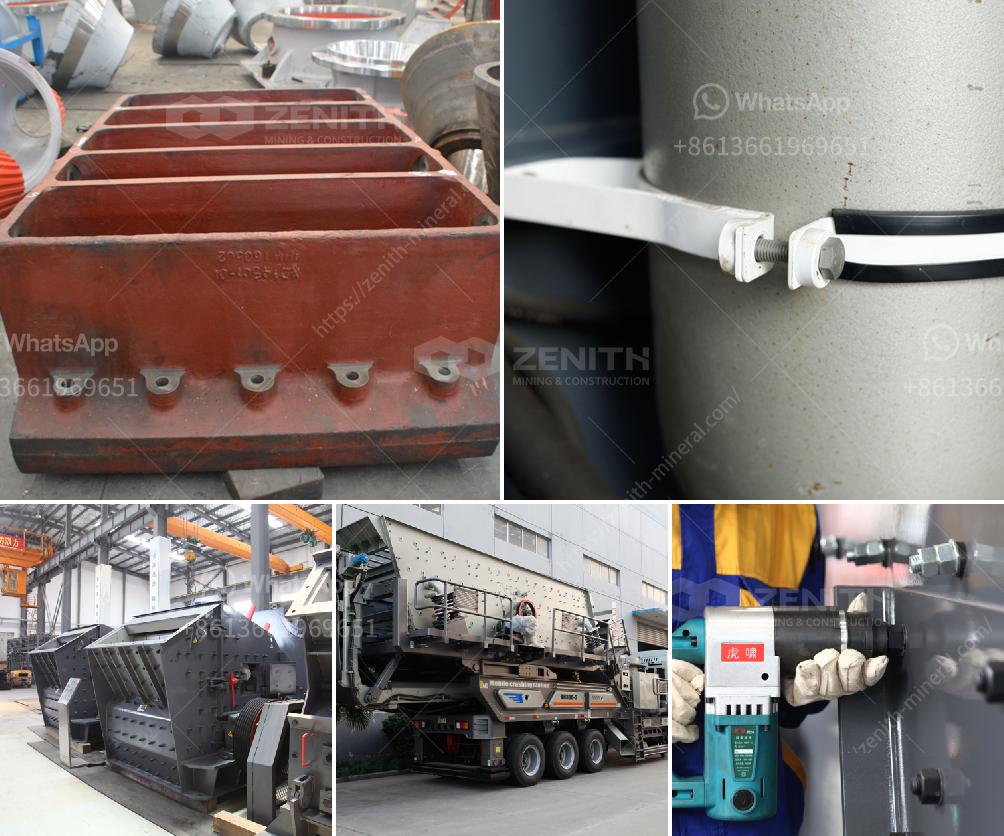Setting up a stone crushing business in Kenya involves several steps and considerations. Here is a detailed guide to help you through the process:
1. Market Research and Feasibility Study
Before starting any business, it's crucial to conduct thorough market research and a feasibility study. This will help you understand the demand for crushed stones in your target market, the competition, and the potential profitability of the business.
- Market Demand: Assess the demand for crushed stones in construction and infrastructure projects.
- Competition: Identify existing stone crushing businesses and analyze their strengths and weaknesses.
- Cost Analysis: Estimate the costs involved in setting up and running the business, including equipment, labor, and raw materials.
- Profitability: Calculate the potential revenue and profit margins.
2. Business Plan
A well-structured business plan is essential for securing funding and guiding your business operations. Your business plan should include:
- Executive Summary: An overview of your business idea and objectives.
- Market Analysis: Insights from your market research and feasibility study.
- Business Structure: The legal structure of your business (e.g., sole proprietorship, partnership, limited company).
- Products and Services: Description of the types of crushed stones you will produce.
- Marketing Strategy: How you plan to attract and retain customers.
- Operational Plan: Details of the day-to-day operations, including sourcing raw materials, production processes, and distribution.
- Financial Plan: Budget, funding requirements, and financial projections.
3. Legal Requirements
Complying with legal and regulatory requirements is crucial for operating a stone crushing business in Kenya. This includes:
- Business Registration: Register your business with the relevant government authorities.
- Licenses and Permits: Obtain the necessary licenses and permits for mining and crushing operations. This may include environmental impact assessments and approvals from local authorities.
- Tax Registration: Register for taxes and obtain a tax identification number.
4. Location and Site Selection
Choosing the right location for your stone crushing plant is critical. Consider the following factors:
- Proximity to Raw Materials: Ensure the site is close to the source of raw materials (quarries) to minimize transportation costs.
- Accessibility: The site should be easily accessible for transportation of raw materials and finished products.
- Infrastructure: Availability of essential infrastructure such as water, electricity, and roads.
5. Equipment and Machinery
Investing in the right equipment and machinery is essential for efficient operations. Key equipment includes:
- Crushers: Different types of crushers (jaw crusher, cone crusher, impact crusher) for various stages of crushing.
- Screening Equipment: For sorting and separating crushed stones by size.
- Conveyors: For transporting materials within the plant.
- Loaders and Excavators: For handling raw materials and finished products.
6. Workforce
Hiring skilled and experienced workers is crucial for the success of your business. Key personnel may include:
- Plant Manager: To oversee operations and ensure efficiency.
- Machine Operators: Skilled workers to operate crushers and other machinery.
- Maintenance Staff: To ensure equipment is in good working condition.
- Administrative Staff: For handling paperwork, finances, and customer relations.
7. Production Process
The stone crushing process typically involves the following steps:
- Extraction: Sourcing raw materials from quarries.
- Crushing: Using crushers to break down large stones into smaller pieces.
- Screening: Sorting crushed stones by size using screening equipment.
- Washing: Cleaning the stones to remove impurities.
- Stockpiling: Storing the finished products for distribution.
8. Marketing and Sales
Developing a strong marketing and sales strategy is essential for attracting customers and growing your business. Consider the following:
- Target Market: Identify potential customers such as construction companies, contractors, and infrastructure projects.
- Pricing Strategy: Set competitive prices based on market demand and production costs.
- Distribution Channels: Establish reliable distribution channels to deliver products to customers.
- Promotion: Use advertising, social media, and networking to promote your business.
9. Financial Management
Effective financial management is crucial for the sustainability of your business. This includes:
- Budgeting: Creating and adhering to a budget to control costs.
- Accounting: Keeping accurate financial records and managing cash flow.
- Funding: Securing funding from investors, banks, or other sources if needed.
- Profitability Analysis: Regularly analyzing financial performance to ensure profitability.
10. Continuous Improvement
Continuously improving your operations and staying updated with industry trends can help you stay competitive. This includes:
- Training: Providing ongoing training for your workforce.
- Technology: Investing in new technology and equipment to improve efficiency.
- Customer Feedback: Listening to customer feedback and making necessary improvements.
By following these steps and carefully planning each aspect of your stone crushing business, you can increase your chances of success in the competitive market in Kenya.

